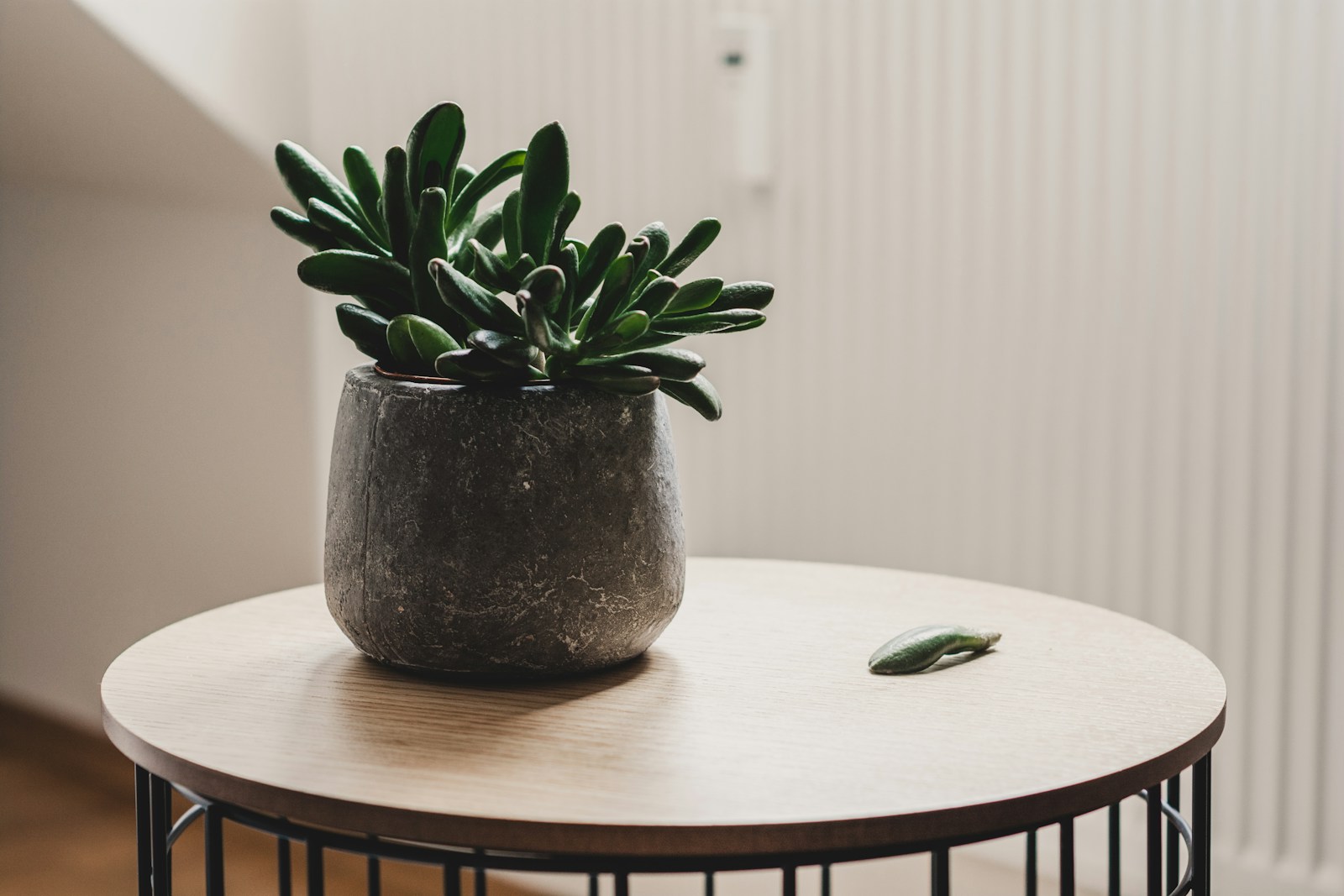Indoor plants bring beauty, fresh air, and a sense of calm to any indoor space. But keeping them healthy requires a bit of knowledge, regular attention, and care. Each plant has unique needs, and learning to understand them is key to ensuring your plants thrive. From understanding light requirements to mastering watering techniques, successful indoor gardening can transform your living space while offering personal satisfaction and a connection with nature.
In this guide, we’ll cover 15 essential tips for caring for indoor plants. Each tip is designed to help you create an optimal environment for your plants, promoting growth, resilience, and longevity.
1. Choose the Right Plants for Your Space
One of the most important factors in indoor plant care is choosing plants that match your environment. Each plant species has unique needs when it comes to light, humidity, and space. For instance, low-light plants like pothos, ZZ plants, and snake plants are ideal for rooms with minimal natural light, while high-light plants like succulents and cacti do best in bright, sunny spaces.
Consider factors like your available light, room temperature, and how much care each plant requires. By selecting plants suited to your space and lifestyle, you set a strong foundation for a thriving indoor garden.
2. Understand Each Plant’s Light Requirements
Indoor plants vary widely in their light needs, so it’s essential to understand what kind of light each one prefers. Light is crucial for photosynthesis, the process that plants use to create energy, so providing the right amount is key to their health. Low-light plants can survive in indirect sunlight or shaded areas, while bright, direct light is better suited for species like succulents and herbs.
To ensure your plants receive adequate light, consider their placement carefully. Placing high-light plants near south-facing windows often works best, while low-light plants can thrive in east- or north-facing areas. If natural light is limited, supplement it with artificial grow lights to mimic sunlight.
3. Water Wisely: Avoid Overwatering and Underwatering
Watering is one of the most common challenges in indoor plant care, and finding the right balance is crucial. Overwatering is a frequent cause of plant health issues, as excess water can lead to root rot and fungal growth. Conversely, underwatering deprives plants of the moisture they need to thrive. The best way to water wisely is to learn each plant’s specific watering needs.
Check the top inch of soil before watering; if it feels dry, it’s time to water. Different plants have varying needs—cacti and succulents prefer drier soil, while ferns and tropical plants need consistently moist soil. Using pots with drainage holes also helps prevent water from accumulating at the bottom, reducing the risk of overwatering.
4. Use Well-Draining Soil
Soil quality is crucial for indoor plant health, and well-draining soil is a must. Indoor plants generally require potting mixes that allow water to flow easily while retaining necessary moisture. Poor-quality soil or heavy, compacted soil can restrict root growth and cause water to pool, leading to root rot.
For most indoor plants, a potting mix containing peat moss, perlite, or vermiculite offers good drainage and aeration. You can find specific mixes designed for succulents, orchids, and other plants with unique soil requirements. Investing in quality potting soil can make a significant difference in your plants’ growth and resilience.
5. Choose Pots with Drainage Holes
Pots with drainage holes are essential for preventing water from accumulating at the base, which can suffocate roots and promote rot. Without drainage holes, excess water has nowhere to go, leading to waterlogged soil and unhealthy plants. When selecting pots, look for ones that offer drainage, as this allows the soil to dry out between waterings.
If you have decorative pots without drainage, you can use a simple workaround by placing a plastic nursery pot with drainage holes inside the decorative pot. This setup allows excess water to drain out of the inner pot and keeps your plants healthy.
6. Maintain Consistent Humidity Levels
Indoor plants, especially tropical varieties like ferns, orchids, and calatheas, thrive in environments with higher humidity. Central heating and air conditioning can dry out indoor air, creating challenging conditions for plants. To maintain adequate humidity, consider using a humidifier in rooms with plants, especially during dry winter months.
Grouping plants together can also create a micro-environment that increases humidity around them. Misting plants occasionally with water can help, but be careful not to overdo it, as excessive moisture on leaves can encourage mold and fungal growth.
7. Dust and Clean the Leaves Regularly
Indoor plants are exposed to dust and indoor pollutants, which can settle on their leaves and obstruct light absorption. Dusting and cleaning the leaves is an easy way to keep your plants healthy and improve their ability to photosynthesize. Wipe leaves gently with a damp, soft cloth or use a gentle spray of water to remove dust buildup.
For smaller plants or plants with intricate leaves, a soft brush can help clean in between crevices. Regular cleaning not only keeps plants looking fresh but also helps them function more efficiently.
8. Rotate Plants for Even Growth
Indoor plants tend to grow toward the light, which can cause them to lean or become lopsided over time. To ensure even growth, rotate your plants every week or two. This will help them develop a balanced shape and allow all sides of the plant to receive equal sunlight exposure.
Rotating plants also prevents them from developing weak stems or branches due to uneven light distribution. This simple practice supports stronger, more attractive plants and reduces the need for pruning or repositioning.
9. Fertilize Wisely: Less Is More
Fertilizing indoor plants provides them with essential nutrients that may be lacking in their potting soil, but too much fertilizer can harm rather than help. Generally, indoor plants don’t need as much fertilizer as outdoor plants, especially in the fall and winter when growth slows down. During the growing season (spring and summer), a balanced liquid fertilizer applied every 4-6 weeks is usually sufficient.
Different plants have different nutrient needs, so be sure to choose a fertilizer that suits the specific requirements of your plants. Always follow the recommended dosage, as over-fertilizing can lead to nutrient burn and damage your plants.
10. Monitor for Pests and Diseases
Indoor plants are vulnerable to common pests like spider mites, aphids, and scale insects, which can damage foliage and weaken the plant. Regularly inspecting plants for signs of pests, such as yellowing leaves, webbing, or small holes, can help you catch and treat infestations early.
If pests appear, natural remedies like neem oil, insecticidal soap, or even a gentle wipe with a soapy cloth can help eliminate them. For more persistent problems, isolate the affected plant and consider consulting with a plant expert. Prompt action against pests prevents them from spreading to other plants.
11. Prune Regularly for Healthier Growth
Pruning is essential for maintaining the health and appearance of indoor plants. Regular pruning removes dead or yellowing leaves, encourages new growth, and allows the plant to focus its energy on healthy foliage and branches. Pruning also helps improve air circulation around the plant, reducing the risk of fungal growth.
Use clean, sharp scissors or pruning shears to trim plants, focusing on dead, damaged, or overgrown areas. Some plants benefit from pinching back new growth to promote a bushier shape. Pruning also keeps plants compact, which is especially helpful in limited indoor spaces.
12. Avoid Sudden Temperature Changes
Indoor plants are sensitive to temperature fluctuations, which can stress them and hinder growth. Avoid placing plants near drafty windows, heaters, or air conditioners, as sudden changes in temperature can cause leaf drop or browning. Most indoor plants thrive in temperatures between 65-75°F, with some variations depending on the species.
If you move plants outdoors for the summer, bring them back inside gradually to prevent shock. Keeping plants in a stable environment helps them adjust and grow without unnecessary stress.
13. Repot Plants When Necessary
Over time, plants outgrow their pots and need to be repotted into larger containers to allow for root expansion. A plant that has become root-bound, with roots circling tightly inside the pot, won’t be able to absorb water and nutrients effectively. Repotting not only gives roots more room but also refreshes the soil, providing a boost of nutrients.
When repotting, choose a pot one or two inches larger than the current pot, add fresh potting mix, and gently loosen the roots to encourage growth in the new soil. Avoid repotting too often, as some plants, like succulents, prefer tighter spaces.
14. Provide Air Circulation
Good air circulation is essential for indoor plants as it prevents stagnant air, which can encourage mold growth and attract pests. Plants in poorly ventilated areas are more susceptible to diseases and rot. Open windows periodically, or use a fan set on a low setting to maintain airflow, especially if you have a large collection of plants in one area.
Air circulation also helps maintain even humidity levels, which is beneficial for tropical plants. Keeping the air moving around plants promotes healthy growth and reduces the likelihood of issues related to dampness.
15. Learn to Recognize Your Plant’s Needs
Above all, learning to recognize each plant’s unique needs is key to successful indoor plant care. Observing changes in leaves, stems, and overall growth can help you understand when a plant needs water, light, or a different environment. For instance, yellowing leaves can indicate overwatering, while stunted growth might suggest a need for repotting or additional nutrients.
Each plant communicates in its own way, and getting to know these signs allows you to adapt your care routine accordingly. Patience and observation are your best tools for keeping indoor plants happy and healthy.
Caring for indoor plants is a rewarding endeavor that enhances both your home’s aesthetics and your well-being. With these 15 essential tips, you can create a thriving indoor garden that brings life, color, and fresh air to your space. By understanding your plants’ specific needs, from light and water to humidity and soil, you set them up for healthy, resilient growth.
Indoor gardening requires attention and dedication, but the results are well worth the effort. As you apply these practices, you’ll develop a deeper appreciation for the beauty and resilience of plants, and enjoy the benefits they bring to your indoor environment.




